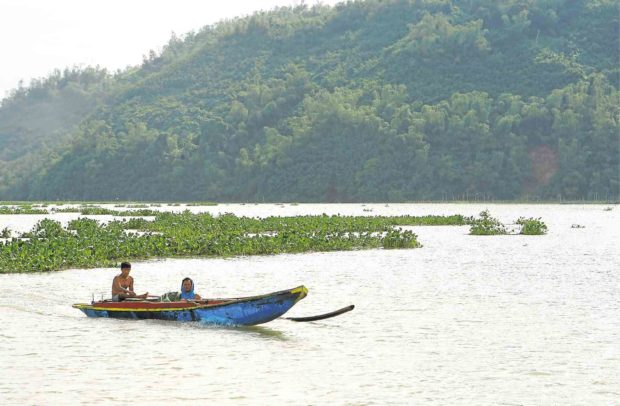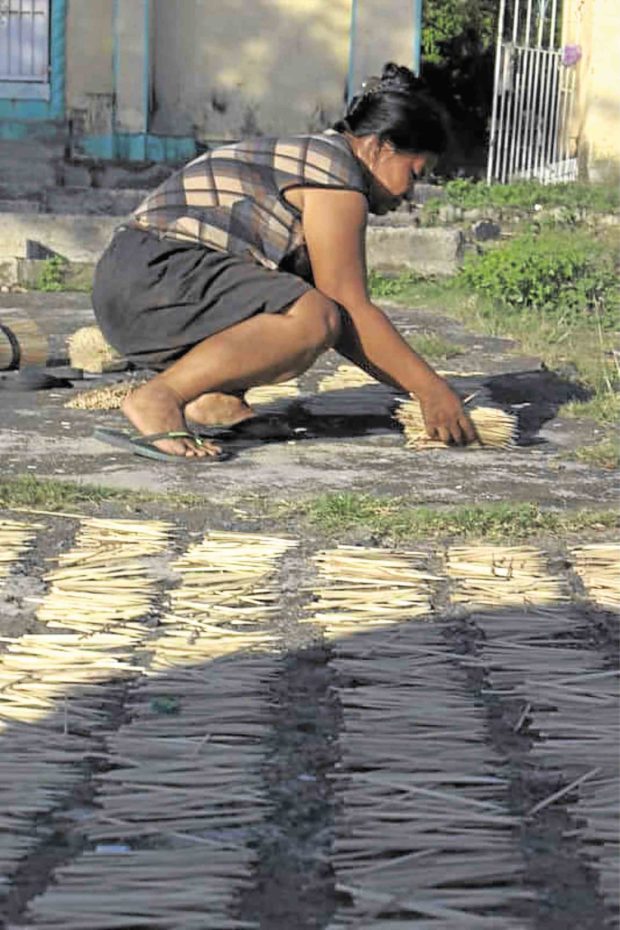High costs stunt growth of bamboo industry in Talim

ISLAND LIFE Laguna de Bay, the largest lake in the country, plays a huge role in the life of Talim Island residents, many of them relying on fishing and growing bamboo to sustain their families. —NIÑO JESUS ORBETA
Have you ever wondered where the lowly bamboo skewers holding together your favorite street food come from?
Most likely, they come from Talim Island, a speck of land on Laguna de Bay.
Talim is divided into the Binangonan and Cardona sides, both under the province of Rizal.
It is on the Binangonan side facing Laguna province where bamboo growing is considered a major source of livelihood in at least three villages: Ginoong Sanay, Pinagdilawan and Malakaban.
Dwindling supply
Article continues after this advertisementBamboo, particularly “kawayan tinik” (Bambusa blumeana), used to grow abundantly on the hilly parts of Talim until about 10 years ago when the supply began to dwindle.
Article continues after this advertisementFor decades, families on Talim Island have been producing bamboo skewers (or sticks) for food vendors and hawkers across Laguna Lake in the cities of San Pedro, Biñan, Sta. Rosa, Cabuyao and Calamba in Laguna, and in parts of Metro Manila.
Other families supply bamboo furniture, bamboo poles for fish pens, and woven bamboo crates (“kaing”), until the introduction of plastic containers in the 1960s tempered the demand.
Cottage industry
In Dumaguete City, Negros Oriental, making bamboo caskets became a thriving industry with a ready market in Europe.
But the industry withered “because of the lack of raw materials and higher transportation costs (from the mountains to the processing centers),” said Edgardo Manda of the Philippine Bamboo Foundation.
The bamboo trade has been on Talim Island “even before I was born. It was considered a cottage industry, with people working on bamboo products even while watching television at home,” recalled Talim resident Myline Aparente.

SUN-DRIED A woman leaves barbecue sticks by the roadside to dry as the community engaged in producing these bamboo skewers on Talim Island lacks mechanized driers. —PHOTO COURTESY OF ERDB
Difficult chores
The men of the house take on the more difficult chores—harvesting, hauling and chopping the bamboo poles—while the women, even the children and the elderly, do their bit sharpening, drying and polishing the bamboo sticks.
Like farmers and fishers drying their palay or fish, Talim folk sun-dry the bamboo sticks on roads or rooftops.
Aparente, a community development officer of the Ecosystems Research and Development Bureau (ERDB), and Ma. Vienna Austria, ERDB training specialist, have conducted a study and training on the bamboo trade on Talim Island.
According to the ERDB, which is under the Department of Environment and Natural Resources (DENR), about 80 percent of the population in each village are into bamboo stick-making.
A family living off the bamboo trade earns an average of P2,776 monthly, a pittance compared to the P6,640 monthly take of traders or middlemen.
Training
Since the island is accessible only by boat, the dealers usually pay the families weekly with basic goods like milk, sugar and rice bought from the mainland, “like barter trade,” Aparente said.
Since 2014, the ERDB has been training bamboo stick makers in Talim on proper bamboo cutting and propagation.
It also introduced the use of the Hi-Q VAM 1, an inoculant (or desirable bacteria) developed by a retired ERDB employee, Evangeline Castillo, for better absorption of soil nutrients by the bamboo.
‘Less appreciated’
Bamboo, a “less appreciated” crop, has as much potential as coffee, cacao or rubber plants, Manda said.
Quoting data from the DENR, Manda said only about 50,000 hectares of land in the country were planted to bamboo.
“Our proposal is for a contiguous land for bamboo plantation and a stronger capability-building program for local bamboo farmers,” he said.
“If only there were more support from (local government units) or other agencies (to boost the bamboo trade),” Aparente said.